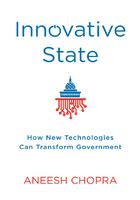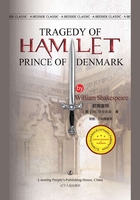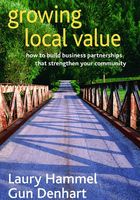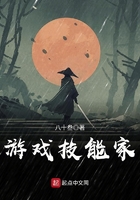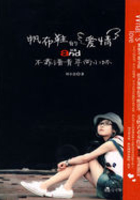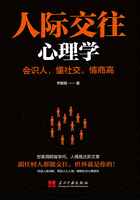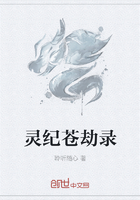"Batman" Switches Teams
"History has many cunning passages, contrived corridors
And issues, deceives with whispering ambitions,
Guides us by vanities"
-T. S. Eliot, Gerontian
Kuala Lumpur, Malaysia, 1994
Sometime in early 1994, Jim's superiors cabled him with his new assignment. The CIA was sending him stateside later that year, where he would report to The Farm to teach tradecraft.
"I think the living environment there will be better for the kids than up in Washington," Jim wrote in his personal journal. He had kept a diary since the 1970s, and it now filled several volumes. "The housing and living there is very good, more affordable than in D.C. and more attractive. The schools are smaller, also an advantage. I may have been able to do better career-wise in taking a job at headquarters this time, but the operations training will probably be better for the family as a whole, plus it will make best advantage of my experience for the future of our organization. Teaching is something I have thought would be interesting. I am a little nervous about it, nevertheless. Still, change is often interesting and usually good for me."
The agency liked to rotate veteran spies through The Farm, where their skills and real-world espionage experience would inspire and embolden students. Jim was a likely pick for one of the plum jobs. He had put in a dozen years overseas, and his supervisors at Langley probably thought a little time on The Farm would reinvigorate him.
As a deputy chief in the CIA's Kuala Lumpur station, Jim oversaw the office's spy operations. He was assigned to the U.S. Embassy, which sat on the northwest corner of the Royal Selangor Golf Club, in a swanky part of downtown called the Golden Triangle. Near the embassy, workers were completing the superstructure of the Petronas Twin Towers, an architectural wonder that would eventually stand taller than the Empire State Building.
Nathan would turn ten that summer. He liked the International School of Kuala Lumpur, where he wore a uniform of navy blue shorts and a white polo shirt with the school's Panther logo over the pocket. His life in Malaysia marked a crossroads. He had grown up with an absentee dad who returned from time to time bearing gifts. "He was more of a Santa Claus figure," Nathan recalled. But the father who was always vanishing into taxis and airport terminals was now at his disposal. Jim coached Nathan's soccer, basketball, and softball teams, and he shuttled his youngest to and from an introductory tae kwon do class.
Jim supervised his kids' homework and chauffeured them from one activity to another, thrilling in their accomplishments. Jeremi earned his Eagle Scout medal. Star had become an excellent equestrian. Nathan was a dynamo on the soccer team. They ate late dinners together, slopping up curry with the popular local flatbread, roti canai. Jim often drove them out to the swimming pool at the exclusive Raintree Club of Kuala Lumpur. Nathan's siblings spent many summer days reading indoors, but he couldn't hack it inside. He hurled himself outdoors with school friends, searing golden brown in the tropics.
Jim spent the spring of 1994 finalizing his divorce, drawing closer to his kids, and trying to jump-start his love life. He had gotten serious about a Chinese Malaysian named Lily, who worked at the U.S. Embassy. But his oldest kids detested her. Star and Jeremi saw their dad's sweet young trophy girlfriend as a barnacle they hoped to pry loose before things got too serious. Lily worsened matters by presenting them with trinkets that made them feel as if they were being bought off. Nathan was still young enough to appreciate Lily's attention. He liked the little pewter spaceship figurine she bought him. But Nathan missed his mom and hoped his parents would reconcile. Unlike his siblings, he was grateful to Lily for doting on him and making his dad happy again.
As Jim's tour in Malaysia drew to a close in the middle of 1994, he sat the kids down to tell them he planned to propose to Lily. "I'm gonna put you guys first," Nathan recalled his dad saying. "If any of you don't like Lily, that's it." Star and Jeremi immediately voted no. Nathan would never forget the look of heartbreak on his dad's face. While Nathan voted yes, the deal was already sealed. Jim would slowly break things off with Lily. She stayed around for a time, but Nathan remembered that she and her dad now said their goodbyes outside the house.
When school ended that spring, Jim flew the kids back to Oregon to spend the summer with Laurie and his extended family. Laurie and her lawyer were now making noise about money, forcing Jim to consider the financial implications of years of alimony and child support, college tuition, and twice-a-year airfare for the kids to see Laurie. They fought over community property-cars and furniture and keepsakes, along with a few small patches of undeveloped land they owned in Texas and coastal Washington, and the equity in their northern Virginia town house. But their biggest tilts involved custody: Both sought primary care of the kids.
One of Jim's greatest faults, Laurie recalled, was that he had somehow accustomed himself to champagne tastes on a Budweiser budget. She used to tell him, "You have holes in your pockets as big as your pockets." Jim was almost a fetishist about acquiring electronic gadgets. He bought top-shelf TVs, stereos, computers, and video-game systems, swapping them out as they lost their luster. While most of his colleagues bought their clothes off the rack, Jim preferred hand-tailored suits from Hong Kong. Early in his marriage, he had flown off on an overseas assignment and returned wearing a silver Rolex watch. Perhaps knowing Laurie would flip, he'd picked her up a pair of cheap vases.
With his looming divorce decree sure to break the bank, Jim devised a plan.
The CIA authorized Jim in the spring of 1994 to meet face-to-face with the SVR's top official in Kuala Lumpur, Yuri P. Vlasov. (This was perhaps a pseudonym, since this also was the name of a Soviet Olympic gold medalist in weightlifting who famously denounced the KGB.) Vlasov served as rezident in the Malaysian city, the equivalent of a CIA station chief. Jim's official meetings with Vlasov at the SVR's rezidentura were intended to throw open the door to dialogue between the two spy agencies. But Jim's under-lying goal, tacitly approved by the agency, was to offer the Russian intelligence chief a chance to work secretly for the CIA.
Russians had jumped ship in droves after the collapse of the Soviet Union to secretly work for the CIA and FBI. The going rate for U.S. intelligence agencies to bring one of the valuable traitors aboard was about one million dollars. It was a buyer's market. So much so that U.S. intelligence officials had put limits on how many of these volunteers they would put on the payroll.
The CIA kept some of these voluntary turncoats, known as "walk-ins," as agents in place. This meant they kept their jobs in Russian intelligence services, but leaked secrets to the agency. The United States and the Russian Federation, now democratic partners in the global marketplace, found themselves clumsy at making nice after decades of head-to-head battles. While they continued to spy on each other, it behooved them to team up on issues such as counterterrorism, which threatened both nations. It was the right time for the U.S. and the Russian Federation to quit acting like the playground bullies who'd been forced to shake hands after the fight.
Higher-ups in the CIA and SVR had agreed to share intelligence on Islamic terrorist organizations, such as Hezbollah, which threatened Russian and U.S. interests. Muslim extremists had bombed New York's World Trade Center in 1993, and Russia-having lost its war against Afghanistan's mujahideen-was now hip deep in an undeclared war against Islamic guerrilla forces in the breakaway region of Chechnya.
Jim made his way to the Russian Embassy. It was a mile away from the U.S. diplomatic station, walking distance if you didn't mind soaking through your shirt on the way over. It may never be clear whether Jim and Vlasov discussed terrorism in their first meeting, but it would have been timely. Not quite six years later, a group of Arab terrorists-some battle-hardened by the Soviet war in Afghanistan-met in that very city to plan a series of attacks attributed to a group that came to be called al-Qaeda.
What is known about Jim's meeting with Vlasov is that the CIA had given their man permission to offer the Russian-just between gentlemen-an opportunity to switch teams.
In spy parlance, this is called hanging out the shingle. This wasn't a formal pitch, simply the CIA's way of opening the door, a smidge, to see if Vlasov would take a peek at the pile of money on the other side. Jim knew that developing the rezident into a mole for the CIA would be next to impossible. But he also knew that were he successful, his star would shoot through the roof at Langley, and he'd likely earn a bump in pay. The same went for Vlasov: Recruiting Jim would be a major coup. Both spies were high-level officers who held the positions, and security clearances, necessary to breach some of their nations' best-kept secrets.
What Vlasov couldn't have known is that Jim had been daydreaming about switching teams even before their meeting. He imagined himself selling his country's secrets in exchange for piles of cash-money that could solve his problems. He would pay off Laurie in the divorce and possibly gain primary custody of the kids. Jim tried to rationalize such a betrayal. He figured the CIA had long ago turned him into a criminal. He had broken into houses, planted bugs for the agency. He had paid people to steal their own countries' secrets. Besides, as he noted years later in an interview with author David Wise, he didn't see Russia as the "bogeyman" of yesteryear. But Jim was tortured by nightmares of going to prison.
Jim should have had nightmares. A few weeks back, in a courthouse near his old rental house in Alexandria, a federal judge had sentenced former CIA officer Aldrich Ames to prison for the rest of his life. Ames' Russian handlers had given him the code name Kolokol ("The Bell"), paying him a staggering $2.5 million as their agent inside the CIA. Ames apologized during his sentencing hearing in Alexandria's federal courthouse. But he told the judge he'd grown disenchanted by the U.S. government's extreme political shift to the right and accused the CIA's careerist bureaucrats of deceiving generations of Americans and their policy makers about the necessity and value of their spying.
Years later, from inside the U.S. Penitentiary in Allenwood, Pennsylvania, Ames would acknowledge in a letter to me that the odds of someone inside the CIA selling the agency's secrets and getting away with it was, and remains, quite poor. Ames wrote that the CIA's spies are paid as well as comparably qualified civil servants. Like other Americans, they save money, buy houses, send their kids to college, and take vacations. Still, like other professionals, they come up short, suffer financial crises, and divorce. "Only a very, very few try to solve these problems illegally, robbing banks or getting money for secrets," he wrote. "Loyalty of one sort or another, fear and conventionality, keep most on the straight and narrow."
Jim knew that Ames had been captured, convicted, and sentenced to life. His colleagues in the CIA considered Ames a disgrace for embarrassing the agency and betraying his government's secrets. Ames' betrayals had helped Russia identify and execute spies inside its own intelligence operations. But Jim took a different view of Ames' treachery and arrest. He figured that with Ames out of the way, the SVR might be in the market for another highly paid mole inside the CIA.
By sunset on June 17, 1994, one of the longest days of the year in Kuala Lumpur, Jim would have taken his first irreversible steps toward becoming the CIA's new Judas. While meeting in Russia's embassy, Jim told Vlasov he was in trouble. His tour in Malaysia was ending, he said, and he was up to his jugular in an expensive divorce and custody fight. Soon he would have to resettle his kids in the United States.
"I need twenty-five thousand dollars," he said.
Vlasov sat for a moment, taking it all in. He had gray hair and a nice suit. His English was good.
"That should not be a problem," he said.
The Russian's face betrayed no emotion. But he must have been ready to burst into song over his good fortune. Jim had required neither flattery nor coaxing. There would be no seduction necessary to get the CIA man to betray his country for cash. Jim had simply volunteered to spy against the very nation he had served with distinction for twenty years. Vlasov, however, was trained to be suspicious. Guys like Jim rarely volunteered. Vlasov knew that CIA and FBI counterintelligence personnel sometimes posed as potential spies against the U.S. The long-term strategy of these "dangles" was to play the Russians, learn what kind of operations they were running, and give them useless tidbits to string them along. Moscow's spies had done the same thing for generations.
Vlasov wanted to know what Jim could do for Russia, and Jim explained that he was being sent to The Farm as an instructor. Vlasov had to grin.
"What did you do wrong?"
Vlasov knew Jim could help the SVR. In his new position at The Farm, Jim would learn the true identities of hundreds of Career Trainees, known as CTs, many of whom would be sent overseas on their first tours-some to spy on Russia. If Jim gave up the identities of those CTs, the SVR would know them on sight. This meant Moscow wouldn't have to waste time and countless rubles identifying CIA officers in foreign nations. This would turn Russia into a toothy cat in its global cat-and-mouse games with the CIA. The SVR could set traps for the young CIA officers all over the world, bugging their homes and tailing them.
Russian spies were notoriously patient. They often gathered information on foreign intelligence officers for years before pitching them to commit espionage against their own countries. A walk-in windfall such as Jim Nicholson could keep SVR spy operations hopping. With his new job in the CIA, Jim would be strategically placed to become the next Aldrich Ames.
But Vlasov was left to wonder whether Jim could deliver the SVR the names of deep-cover American spies. Officers with nonofficial cover, known as NOCs, operated alone, often posing as businessmen. This work was dangerous. Intelligence officers with embassy cover caught in the act of espionage in a foreign country were typically expelled. But the unmasking of NOCs was a different matter. They could be arrested and sentenced to long prison terms, even killed.
A week after Jim's pivotal meeting with Vlasov, they met again at the Russian Embassy. Vlasov handed Jim a stack of hundred-dollar bills, $25,000 in all, and told him that Moscow was holding $75,000 more to pay him later. They met again on June 29. This time, Vlasov told Jim that Moscow had approved their arrangement, and that he would meet his new SVR handler in New Delhi, India, at Christmastime. Vlasov gave Jim a mail-drop address in Harare, the capital of Zimbabwe, and instructed him to send a postcard, signed Nevil R. Strachey, to signal the meeting in Delhi. Someone in the African nation would pick up the mail and alert his handler that the meet was on. The use of the mail drop, which spies call an accommodation address, would put layers of distance between Jim and the man he would meet in India.
Before Jim left the Russian Embassy, the SVR snapped his photo. This would be forwarded to his new handler, who would be told to watch for the CIA man in the lobby of Le Meridien Hotel in downtown Delhi. Vlasov instructed Jim to wear his Rolex on his right wrist and carry a magazine and shopping bag. He would wait for his handler to greet him first before responding with a pass-phrase.
During four visits with Vlasov in June 1994, Jim did his part to show the SVR he meant business. He turned over the names of more than a dozen assets cultivated by his CIA colleagues in Kuala Lumpur, some of them agents working inside Malaysia. All of Jim's meetings were authorized by the CIA. The agency had no reason to suspect Jim of secretly using the meets to chart his course as the CIA's new betrayer.
As far as the CIA knew, Jim was performing bona fide intelligence work in Kuala Lumpur. The very month that he switched teams, the director of Malaysia's spy service, known as the Special Branch of the Royal Malaysian Police, awarded Jim a gold ceremonial dagger, a kris with a serpentine blade.
On the last day of June, Jim wired $12,000 into his savings account at the SELCO Credit Union in Eugene, Oregon. This put him in position to square things with Laurie. That summer, they would finalize the terms of their divorce. Jim was ordered to pay Laurie $4,000 for her share of their land, and $2,000 for her legal fees. The judge thought Jim and Laurie were both good parents. But Jim was a steady government worker with an excellent salary, and Laurie was a broke college student. The judge ruled that Jim would serve as the primary caregiver, and that he must fly the kids home to spend Christmas breaks and summer vacations with their mother.
Camp Peary, Virginia, summer 1994
The CIA's covert training center stretches more than nine thousand acres across the Piedmont flats along the York River in southeastern Virginia. A tall fence corrals much of Camp Peary, named for the North Pole explorer Robert E. Peary. The base has a 1,500-meter airstrip, a helicopter pad, shooting ranges, classrooms, running trails, a swimming pool, a clubhouse, a Holiday Inn–like dormitory to house trainees, and nice homes for its instructors.
CIA officials do not formally acknowledge the place. But to residents next door in Colonial Williamsburg, where actors in tricorner hats carry muskets and women wear bonnets and colonial skirts, Camp Peary is an open secret. The property had variously served as the indigenous home of the Shawnees, the hunting lodge of the last British governor of Virginia, a Civil War field hospital and, during World War II, a training center for Seabees and a stockade for German POWs. Now it was home to one of the world's best spy schools.
Jim had the right mix of skill and charisma to lead the next generation of the agency's CTs. He was assigned to teach tradecraft. The course ran about five months, with a slightly shorter paramilitary course. Between those disciplines, CTs learned how to parachute out of a plane, write and decipher secret messages, shoot pistols and machine guns, drive a car through a roadblock, break into a house to plant bugs, and recruit and handle foreign agents. The CTs would also be dispatched to nearby towns, such as Richmond, for mock operations that taught them how to cultivate assets, set up secret communications, and put the slip on surveillance teams.
The Farm was the ultimate gated community, a kind of secret national park, for the instructors and their families who lived there. Parents never worried about pedophiles or kidnappers, who would rue the day they trespassed on such a heavily secured and devilishly armed facility. The first thing instructors with children were told when they moved onto the base was to buy them bicycles to get around. While portions of The Farm were kept off limits, there were trails and creek beds through vast tracts of hardwood forests open for exploration.
Nathan turned ten the month that his dad moved to Camp Peary. Star would turn thirteen in a few months, and Jeremi was sixteen. The base was so sprawling and clean that Nathan had no clue he lived in a private community inaccessible to the general public. He had spent almost his entire life in government housing in Asia and Europe and had no idea what living in the U.S. was supposed to look and feel like.
The Nicholsons took up residence in a two-story government house with a splendid deck and big backyard at the end of a cul-de-sac. The house was marked M-16, an address that doesn't exist outside The Farm. Nathan chuckled when he first heard the house number, because M-16 also was the name of the military rifle his dad carried in the Army. Jim sometimes regaled Nathan with tales of his days in the Army's elite corps of airborne Rangers, of jump training and small-arms fire. Nathan ate it up, convinced that he, too, would one day wear the spit-and-polish boots of an Army Ranger.
Nathan spent summer days lazing in the base's outdoor swimming pool, nights playing hide-and-seek amid the fireflies. On Saturday evenings, he and other Camp Peary kids gathered in the base clubhouse for movies. They hiked and biked countless miles, exploring the ruins of abandoned houses that-like the boys themselves-were beaten by sun and salt air. They were tough boys, and mischievous.
Early one Saturday evening, Nathan and his friends pedaled out to the airstrip, a restricted space next to the York River, about ten miles from the brackish waters of Chesapeake Bay. Some of the older boys posted Nathan and his friend Mike as lookouts. Nathan couldn't fathom why an airfield held any allure. But they stood point as the others ditched their bikes on the runway and hiked toward a cargo plane. Nathan watched them, astonished by their cheek. The lights of a security station shone on the other end of the strip. What if someone saw them? What if a plane came in for a landing? Nathan could see the boys climb into the cargo plane. Soon, a security officer drove straight toward him and stopped.
"What are you kids doing?" the security man asked.
Nathan explained that he had no idea.
"So how many of your friends are in the plane?"
"Three."
The guard took Nathan's name and drove over to roust the other boys and jot down their names. The boys pedaled back to the base clubhouse to await their fates. Some of them broke into tears as their parents, who'd been notified, rang the clubhouse phone. One by one, the boys took their brief calls, waved weak goodbyes to the others, and headed home to face the music.
Finally, it was Nathan's turn. He sat sick with dread. He could only imagine how disappointed his dad would be. Jim's occasional upbraiding, unlike Laurie's, was neither shrill nor violent. Laurie often shouted and gave them a choice of being either grounded or paddled, the former being so abhorrent to an adventurous kid like Nathan that he frequently took the paddling. Jim's method was to sit Nathan down for discussions. With crisp diction and a wrinkled brow, he walked his youngest through the elements of his transgression. These discussions did not end until Jim was certain Nathan fully understood the gravity of his trespasses. Jim's look of betrayal and words of admonishment were all the punishment he needed.
"Nathan, it's your dad."
He took the phone.
"Son," Jim said, "I understand you were questioned here earlier."
"Yeah."
"Are you all right?"
"Yeah, Dad."
Nathan admitted his role as lookout for the other boys.
"You're not gonna do this again, are you?"
"No."
"All right," he heard his dad say. "I think you've had enough of a scare."
And just like that, it was over. The fright of being caught and questioned by base security, as Jim had said, was punishment enough.
That conversation stitched Nathan and Jim ever closer. But his father had never shared with him the family secret, nor had anyone else. Nathan knew his father held a government job, laboring in and around U.S. embassies. But he'd never been curious enough-or perhaps old enough-to ask the nature of his work. And he was slow to pick up on the abundant clues that his father wasn't an ordinary bureaucrat.
Nathan entered fifth grade that fall, and his yellow school bus seemed to be the only one at Queens Lake Elementary that passed in and out of Camp Peary. He heard someone say the driver had a special security clearance to enter the gates of the camp. The children who lived at the training center, and who knew what their parents really did for a living, were instructed to tell their classmates they lived on a Department of Defense base. It was a small lie perpetuated by signage. But there were more obvious clues, too, that Camp Peary was no ordinary suburban community.
The neighborhood was the only one Nathan ever saw with its own shooting range. Jim gave Nathan trigger time at the range, where he fired a .22-caliber rifle, a crossbow, and one of Jim's big-bore pistols. His dad sometimes took him and his siblings to what he called "demonstrations." Nathan recalls watching a group of men blow up a hillside. Another time, he witnessed a car, closely pursued by another, hurtling down what appeared to be a racetrack. Suddenly, both cars skidded to a halt, with the driver of one pulling a pistol and firing at the other. This was part of the CIA's "Crash Bang" course.
Car crashes, muzzle fire, explosions-to a ten-year-old boy, these were the Siren calls of manhood. But no one offered Nathan any context for these demonstrations.
Nathan mined fragments of his memory for details that might explain why they lived on this strange military post. He recalled a conversation, on the sidelines of a soccer match in Malaysia, in which his father was telling a friend about tailing someone, or maybe of being tailed. His dad had uttered a name, and Nathan could see it bothered the old man to have spoken it in front of him. Jim had said, "I need you to not remember this, all right?" And later, when Jim had quizzed him about the name, he seemed pleased to see Nathan hadn't remembered it.
It's unclear why Jim left Nathan in the dark about his job. Perhaps he figured his youngest was simply too immature to handle such a weighty disclosure. Star and Jeremi had kept the family secret from their little brother. Years would pass before Nathan heard his dad's name uttered in the same breath as words like "spy" and "CIA."

